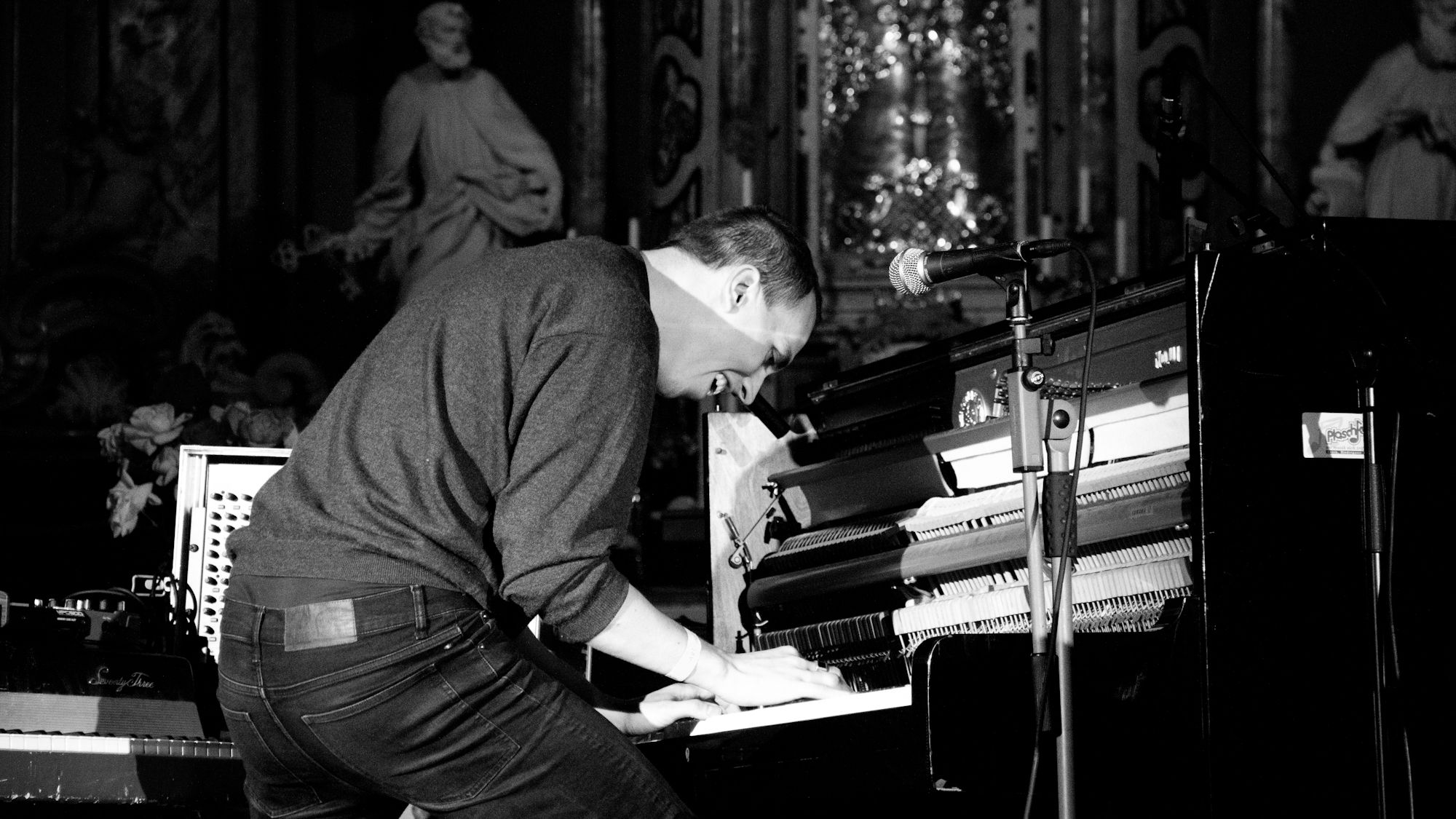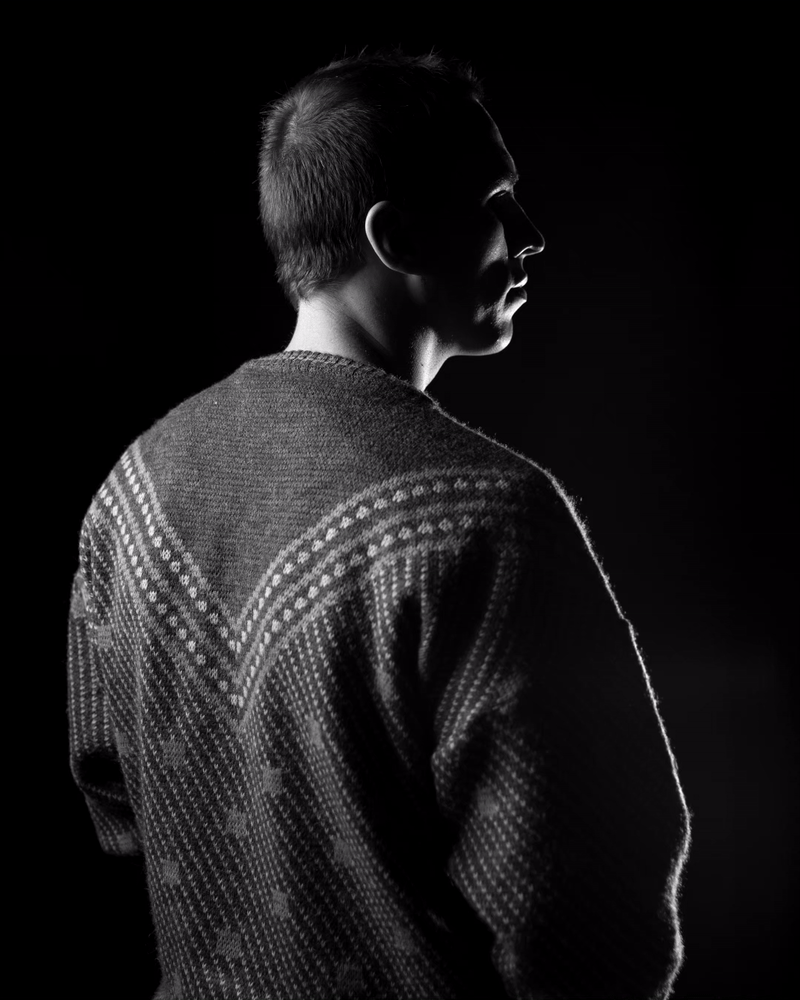After an often miserable and grey week, for once, the evening sky presents itself only tainted by a few clouds. The city is vibrating with anticipation of the weekend this Friday, and a fire crackles in front of Bogen F. The venue, located in one of the arches of a train viaduct in Zurich, is buzzing with people. The trains rattle over the nearby tracks.
A crowd of middle- to older-aged people is sipping beers and the occasional glass of white wine. It's almost your stereotypical classical music audience, but not quite.
Then again, Martin Kohlstedt is also not quite your stereotypical pianist. One could argue, not even close, and some purists might even entirely disapprove of his approach.
The concert on this evening is sold out. In fact, so is even the additional show two days later. Rescheduled two times due to Covid-19, the concert is now happening. And honestly, I'm not here on an official reporting mission, but to finally accept the tickets I got for my 30th birthday almost three years ago.

My first encounter with Martin Kohlstedt was on the 27th of October, 2017. A bit after 7 pm, he took the stage in the church of Kaltern, South-Tirol, at the «Kaltern Pop Festival». And I was baffled by his performance, writing in the festival diary:
Pianist Kohlstedt transports piano sounds into undiscovered dimensions through loops and synthesisers. Imposing like a supernova, lovely like a starry sky and dangerous like an asteroid belt are his pieces. Yet, like outer space, his compositions never lose their fascination despite their vastness.
But the most memorable experience remains the 2019 feature for Negative White—where I talked more profoundly with Kohlstedt about his music and unique process. «I'm a little boy who doesn't want to be defined by anything,» Kohlstedt said back then.
His music, in recorded form, defies the traditional definition of songs. They are fragments, sketches, and ideas. Kohlstedt refers to his songs, each named with three letters, as vocabulary. «There are the old piano pieces, the yearning vocabulary of a time when you didn't know exactly but rather dreamed and shot. At some point, electronics interfered, made it all real, crept in almost like a threat from the side, questioned everything,» he explained in the feature.
This contrasting discourse is the source of energy driving him to keep cultivating his vocabulary.

With his now extensive vocabulary, spanning several albums—or maybe: dictionaries—improvisation is the lubricant of his concerts. There is no set list and no pre-defined programme. Instead, it's pure uncertainty, which is already outrageous for most artists and audiences alike.
But Kohlstedt deals with it openly, and many in Bogen F already know what to expect. However, his transparency always releases the tension and expectation—if only a little.
Almost like an alchemist, Kohlstedt bends over his workstation, but instead of ingredients, he strikes keys, pushes buttons, and turns knobs. The result is breathtaking. Kohlstedt leads us into his labyrinth, and despite knowing it, you still constantly wonder: How far ahead does he plan? Is there even a plan? Or did I just glimpse a brief moment of doubt when his seeking gaze crossed over the instruments?
In those split seconds of uncertainty shared with the audience, the tension is sky-high. But on that evening, Kohlstedt suddenly counters these moments always with inspiration and intuition. «The interaction between this simple sound, which actually wants to be what it is, and all the limits you set yourself all day. This ambivalence is an incredible drive to leave more and more variables loose and to strive for an almost one hundred per cent free concert, where you don't play towards an end,» he said in 2019.
A Profoundly Human Experience
And so we follow deeper into his maze, and Kohlstedt, as our guide, remains as clueless as we are about what may wait behind the next turn. Once, it's an apocalyptic dub-like sound, stomping heavily beneath the stone arch. Or it's some kind of quirky jazz symphony. Yet, there's this all-encompassing tendency to the cinematic—whether the composition resides in intimacy or grows into a soaring, rumbling, gigantic monster.
Kohlstedt's approach is barely a recipe but more a mindset that makes for a captivating experience. But also an exhausting one because it demands your undivided attention. As for the artist himself, there's no security, no recognisable lifeline to hold on to, but only the fragments of vocabulary you know from the recordings.
And so every evening with Martin Kohlstedt becomes a unique exercise in vulnerability, empathy, and liberation from expectations. An experience between artist and audience unlike any other, but it is also profoundly human as risk and failure are not just a danger but an accepted part of that shared moment.





